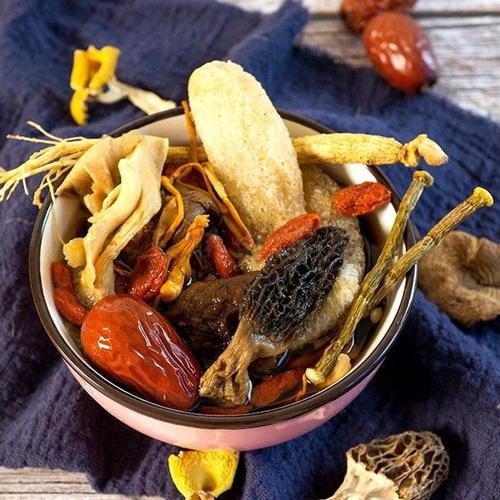**
Understanding Traditional Chinese Medicine (TCM)
**Traditional Chinese Medicine (TCM) is an ancient system of health and wellness that has been practiced in China for over 2,000 years. Rooted in the philosophy of balancing the body's vital energy, or Qi, TCM offers a holistic approach to achieving and maintaining optimal health. Unlike Western medicine, which often focuses on treating symptoms, TCM aims to address the root causes of health issues and promote overall well-being.
At the core of TCM is the concept of balance. According to TCM principles, health is maintained by balancing the body's internal environment with the external environment. This balance is achieved through the harmony of Yin and Yang, two complementary forces that represent different aspects of existence. Yin is associated with coolness, rest, and nourishment, while Yang represents warmth, activity, and energy. The interplay between these forces influences our health, and an imbalance can lead to illness.
**
Key Principles of TCM
**1. **Qi (Vital Energy)**: Qi is considered the life force that flows through the body's meridians, or energy channels. Proper flow of Qi is essential for good health. Blockages or deficiencies in Qi can lead to physical and emotional imbalances. TCM practices such as acupuncture, herbal medicine, and Tai Chi are designed to regulate and enhance the flow of Qi.
2. **Yin and Yang**: As mentioned, Yin and Yang are fundamental to TCM. They represent opposing yet complementary forces. In health, Yin and Yang must be in harmony. For example, a condition characterized by excessive heat (Yang) might be treated with cooling (Yin) remedies.
3. **Five Elements Theory**: TCM also incorporates the Five Elements theory, which includes Wood, Fire, Earth, Metal, and Water. Each element corresponds to specific organs and functions within the body. The theory suggests that health is maintained by balancing these elements, and imbalances can lead to disease.

4. **Meridians and Acupuncture**: The concept of meridians refers to the pathways through which Qi flows. Acupuncture involves inserting thin needles into specific points along these meridians to restore balance and promote healing. Each meridian is associated with particular organs and functions, and stimulating these points can help address various health issues.
**
Traditional Chinese Medicine Practices
**1. **Herbal Medicine**: TCM herbal medicine involves using natural substances to restore balance and treat health conditions. Herbs are often combined into formulas to address specific imbalances. For instance, ginseng is commonly used to boost energy and vitality, while chrysanthemum is known for its cooling properties.
2. **Acupuncture**: Acupuncture is a well-known TCM practice that involves inserting needles into specific points on the body. This technique is believed to stimulate the body's natural healing processes, improve energy flow, and alleviate pain. Acupuncture can be used to treat a wide range of conditions, from chronic pain to digestive issues.
3. **Tai Chi and Qigong**: These ancient practices combine slow, deliberate movements with deep breathing and meditation. Tai Chi and Qigong are designed to enhance Qi flow, improve balance, and promote relaxation. Regular practice can help reduce stress, improve flexibility, and boost overall health.
4. **Dietary Therapy**: TCM also emphasizes the importance of diet in maintaining health. Foods are classified based on their energetic properties, such as heating or cooling. By choosing foods that balance one's internal environment, individuals can support their health and prevent illness. For example, eating warm, cooked foods may be beneficial in colder climates, while cooling foods can help balance excessive heat.
**
Integrating TCM into Modern Life
**Integrating TCM into modern life involves adopting its principles and practices in a way that complements contemporary lifestyles. Here are some tips for incorporating TCM into your daily routine:

1. **Mindful Eating**: Pay attention to the energetic properties of the foods you consume. Aim for a balanced diet that includes a variety of foods with different thermal properties to maintain internal harmony.
2. **Regular Exercise**: Engage in activities like Tai Chi or Qigong to support Qi flow and overall well-being. Even simple practices such as deep breathing and stretching can be beneficial.
3. **Stress Management**: Incorporate relaxation techniques such as meditation or acupuncture to manage stress and maintain emotional balance.
4. **Consult with a TCM Practitioner**: For personalized guidance, consider consulting with a qualified TCM practitioner. They can provide tailored recommendations based on your individual health needs and goals.
**
Conclusion
**Traditional Chinese Medicine offers a rich and holistic approach to health and wellness. By understanding and applying TCM principles, individuals can achieve a greater sense of balance and well-being. Whether through herbal remedies, acupuncture, or lifestyle adjustments, TCM provides valuable tools for maintaining health and addressing various health concerns. Embracing the wisdom of TCM can lead to a more harmonious and fulfilling life.
转载请注明:成都会所桑拿-四川成都休闲桑拿推荐论坛! » 武汉桑拿 » The Essence of Traditional Chinese Medicine: Embracing the Wisdom of Holistic Health and Wellness**
版权声明
本文仅代表作者观点,不代表成都休闲网立场。
本文系作者授权发表,未经许可,不得转载。

























